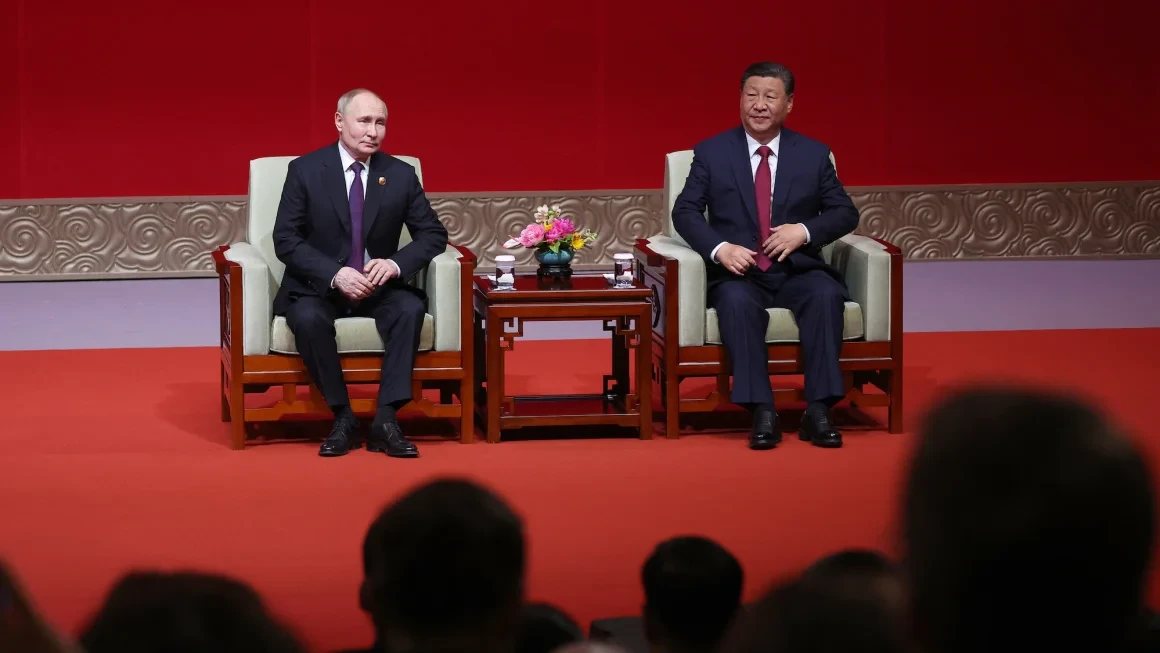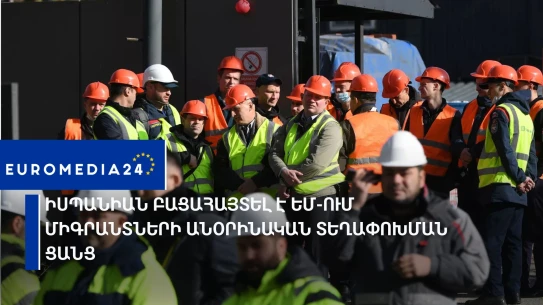A club of Eurasian countries spearheaded by China and Russia to advance their leaders’ vision of an alternative world order is set to expand again this week – this time adding a staunch Russian ally that has openly supported Moscow’s war on Ukraine.The expected admission of Belarus to the Shanghai Cooperation Organization (SCO) at its annual leaders’ summit in Astana, Kazakhstan is another push by Beijing and Moscow to transform the grouping – from a regional security bloc into a geopolitical counterweight to Western institutions led by the United States and its allies.Belarus, which helped Russia to launch its 2022 invasion of Ukraine, will become the latest authoritarian state to join the club, after Iran became a full member last year.Chinese leader Xi Jinping and Russian President Vladimir Putin have arrived in Astana for the summit that begins Wednesday, in what will be their second meeting this year. Indian Prime Minister Narendra Modi, the leader of the world’s largest democracy, is skipping the event, pointing to unease among some members about the direction the SCO is headed.Founded in 2001 by China, Russia, Kazakhstan, Kyrgyzstan, Tajikistan and Uzbekistan to combat terrorism and promote border security, the SCO has grown in recent years in line with Beijing and Moscow’s shared ambition to counter what they see as US “hegemony” and reshape the international system in their favor.In 2017, the bloc underwent its first expansion to welcome India and Pakistan. After adding Belarus, it will boast 10 members, representing more than 40% of the world’s population and roughly a quarter of the global economy. It also has two observer states, Afghanistan and Mongolia, and more than a dozen “dialogue partners” from Myanmar to Turkey and the Arab states.The SCO’s expansion comes after another bloc led by China and Russia, the BRICS group of major emerging economies, more than doubled its membership and significantly extended its global reach last year.Growing ambitionsAs the SCO grows in international visibility and economic weight, it has also broadened in geopolitical ambitions.The expected admission of Belarus, which borders the European Union, “really highlights how the SCO’s mission has changed in the last few years,” said Eva Seiwert, an expert on China’s foreign policy at the Mercator Institute for China Studies (MERICS) in Berlin.“Unlike Iran, you don’t really get much like economic or security cooperation out of Belarus joining. And that’s why I argue that it’s more of a geopolitical move.”With Russia deep in the third year of its grinding war against Ukraine, the SCO has become a crucial diplomatic avenue for Putin, as well as a platform to showcase he’s not isolated internationally. And as China’s relations with the US have plummeted, Beijing is now less concerned about the SCO being branded an anti-Western organization – a perception that has only deepened following Iran’s admission, Seiwert said.“They want the SCO to be perceived as a major bloc that cannot be ignored anymore,” she said. “With all these countries joining, China and Russia (want to show they) both have a lot of supporters for their worldviews.”And in that shared worldview, there is no place for the US in Eurasia.In a meeting with his senior foreign ministry officials last month, Putin laid out a future vision for “a new system of bilateral and multilateral guarantees of collective security in Eurasia,” with the help of existing organizations like the SCO and a long-term goal to “gradually phase out the military presence of external powers in the Eurasian region.”“During my recent visit to China, President Xi Jinping and I discussed this issue. It was noted that the Russian proposal is not contradictory, but rather complements and aligns with the basic principles of the Chinese global security initiative,” said Putin, who visited Beijing in May.
Frictions and uneaseThat big picture vison of an alternative future is going to be the “headline message” for China and Russia coming out of this SCO summit, said Bates Gill, a senior fellow for the National Bureau of Asian Research.But the Belarus membership also creates big question marks that will hang over the organization, Gill said.“It creates all sorts of problems and new questions about the reputation, legitimacy and mandate of the organization, given the nature of the Belarus regime and its support for Russia’s flagrant violation of international law and invasion of Ukraine,” he said.“Clearly the SCO can tolerate authoritarian regimes, but for the mandate of the organization, it further diversifies and dilutes its original focus, which was to be on Central Asia.”The bloc’s expansion hasn’t come without frictions – notably with the admission of bitter rivals India and Pakistan – while tensions between Beijing and New Delhi have also flared in recent years following deadly clashes on their disputed Himalayan border.The grouping’s increasingly anti-Western orientation following its embrace of Iran and now Belarus has also fueled unease among members that want to keep good relations with the West, including the former Soviet states in Central Asia.“In some respects, it puts the Central Asian states in a very awkward position,” Gill said. “They are pursuing what they like to call multi-trajectory diplomacy. They don’t want to be committed to only dealing with one major power, like Russia or China.”Gill, who visited Central Asia in April and May, said there was an ambivalence in regional capitals about the future of the SCO.
Modi is skippingIndia, too, appeared to be losing interest. Last year, it hosted the summit virtually – a muted arrangement that allowed Modi to avoid the optics of welcoming Putin and Xi to New Delhi as it sought closer ties with the US.This year, fresh from his third consecutive term inauguration, the Indian leader is skipping the summit in Astana – despite Russian state media reports that he will visit the Kremlin next week.“This tells us that he does not see the SCO as the most effective channel through which to pursue Indian interests in this part of the world,” Gill said.Even China, the main driver behind the SCO’s expansion, is seeking a more direct way to engage with Central Asia – without Russia’s involvement.
Last year, five leaders from the region received a lavish welcome at the inaugural China-Central Asia summit in the Chinese city of Xi’an, the starting point of the ancient Silk Road trade route that linked imperial China with civilizations to its west over a millennium ago. In March, a permanent Secretariat for the China-Central Asia mechanism was established in the same city.And while China and Russia aspire to present the SCO as a counterweight to US-led institutions, it remains a much weaker and less cohesive bloc compared with the likes of NATO, the European Union or the Group of Seven nations.“Given the expansion of membership with India, Pakistan, Iran and Belarus, the organization will be even less like an alliance or committed common grouping, and more like a strategic-vision type of organization … representative of a Eurasian identity,” Gill said.After the summit in Astana, China is due to take up the rotating presidency of the SCO for a year.Seiwert, the expert at MERICS, said Beijing would work to find more common ground among member states.“For China, it’s important that the SCO doesn’t fail, that it is perceived as successful. I think they’re also aware of all the difficulties that have come with all these different expansions,” she said.“If it keeps on expanding – if Russia and China keep on pushing it to expand – then I think its regional relevance will really just diminish.”


